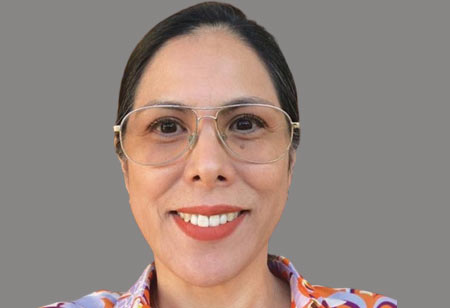Thank you for Subscribing to Healthcare Business Review Weekly Brief

Oral Health Challenges and Solutions for an Aging Population
Healthcare Business Review
The world population is aging, which is fantastic. In Sweden, 2.6 million people are 60 years or older. In 2019, Sweden's population was 10.33 million. The number of older people in Europe is projected to increase significantly in the coming decades. We need knowledge about oral health and regular training in assessment techniques for dental staff.
The increasing elderly population has more teeth, often due to advanced prosthetic dental constructions. While working in retirement homes, I frequently encounter patients with dental problems. Oral diseases and symptoms such as dental caries, periodontitis, and dry mouth are more common. Notably, dental implants can be affected by peri-implantitis, characterized by an inflammatory reaction impacting the hard and soft tissues, which leads to the loss of supporting bone and pocket formation around the functioning osseointegrated implant.
Maintaining oral health becomes more challenging as we age, requiring more support from dental staff and education for personnel in retirement homes. Oral health significantly impacts the quality of life for elderly individuals in various ways.
In 2020, my father was hospitalized for kidney disease at Hospital Rebagliati in Lima, Peru. He received excellent care from the doctors. At 84, I assisted him by brushing his teeth and using an interdental brush, occasionally moistening his mouth with water. This routine helped prevent wounds, caries, or infections in his oral cavity, which would have been painful given his condition.
Maintaining oral health becomes more challenging as we age, requiring more support from dental staff and education for personnel in retirement homes
In general dentistry at Folktandvården Folktandvården, we see healthy elderly patients most of the time. Many received treatment in the 1950s and 1960s when odontology began using an air-abrasive drill, where a jet of abrasive alumina powder was propelled onto the teeth by carbon dioxide with no vibration or pressure, although it was not ideal for cavity preparation. As a result, a majority of these patients suffer from anxiety disorders due to past dental experiences. We sometimes treat them with depressant drugs like benzodiazepine Midazolam. When using Midazolam, it's crucial to be prepared for emergencies, which is why we have an emergency bag nearby containing an oximeter for pulse control, an oxygen tube, dextrose tablets, and an EpiPen. The EpiPen is an autoinjector with epinephrine, a chemical that narrows blood vessels and opens airways in the lungs.
Dental pathology can lead to chewing problems or reduced social interaction. However, providing a perfect solution for dental treatment is challenging without considering various factors. Some patients have mental and physical changes that make it impossible to use dental prostheses responsibly.
In our clinics, we also meet patients for whom appearance is vital for communication and interaction. For these individuals, we offer cosmetic treatments. A beautiful smile lights up the entire face, not just the mouth. Research shows that genuine smiles are one of the most influential and persuasive aspects of all body language. It has been clearly expressed that smiling enhances mood and creates a positive impact on life.
Life is about quality: one quality friend, one quality relationship, one quality experience with food, and the quality of a day without pain or discomfort.









